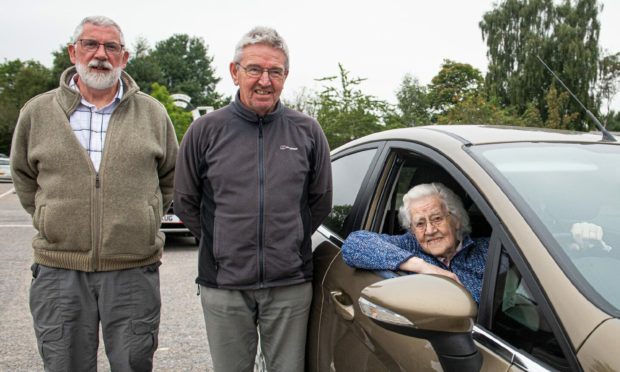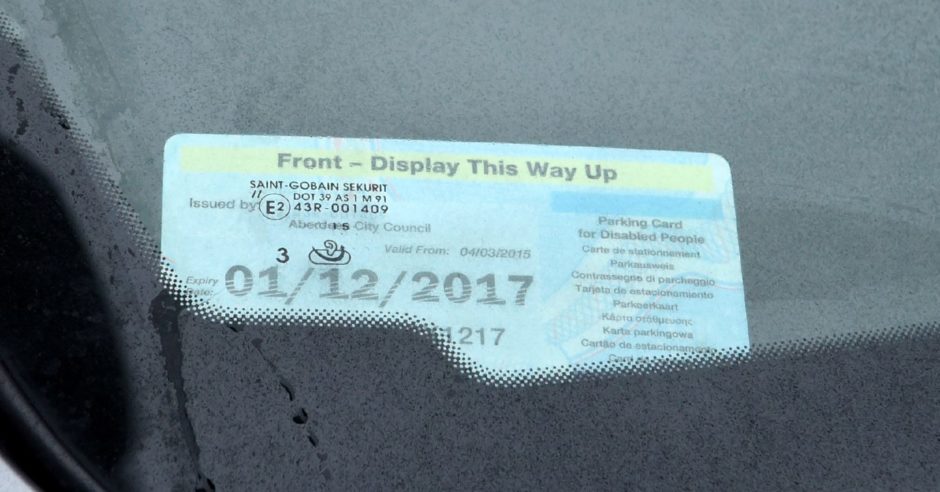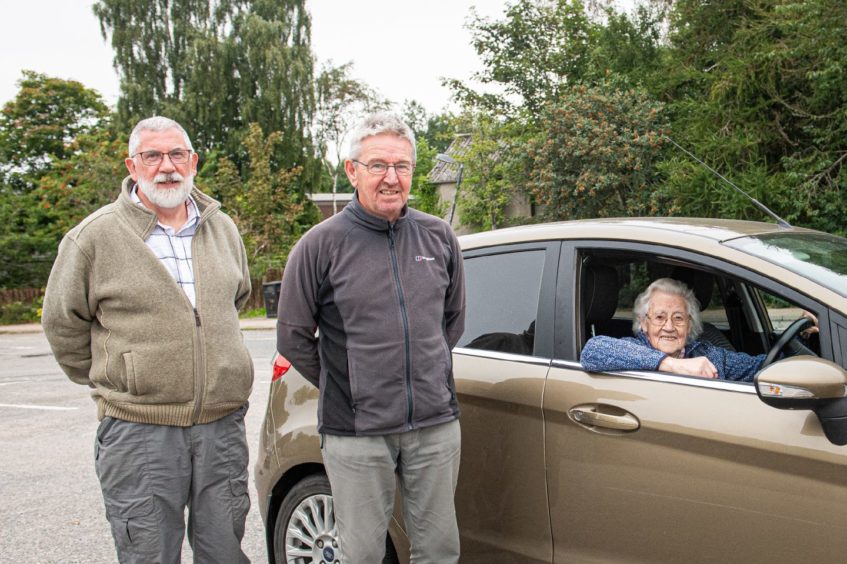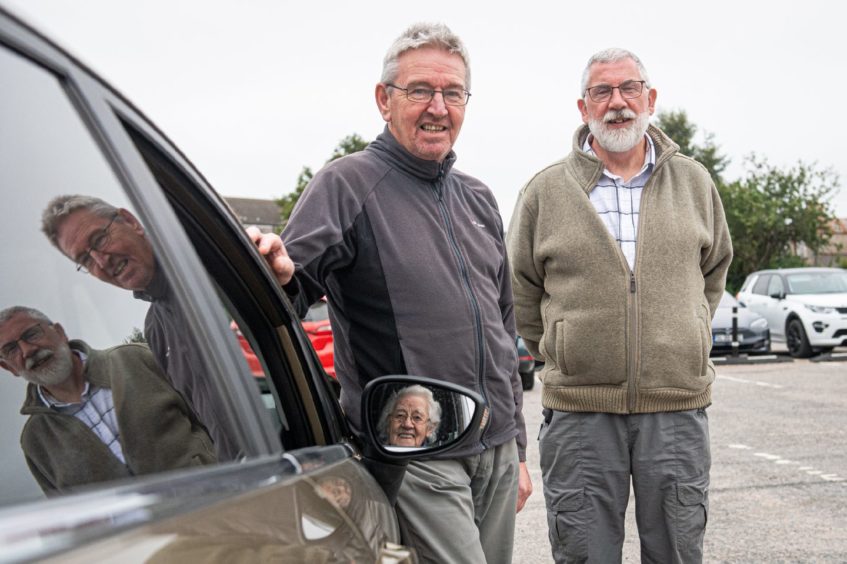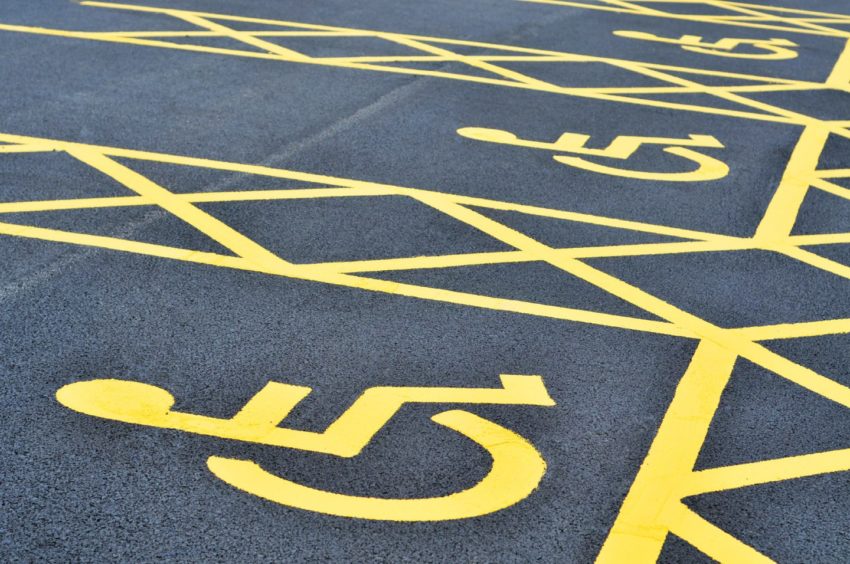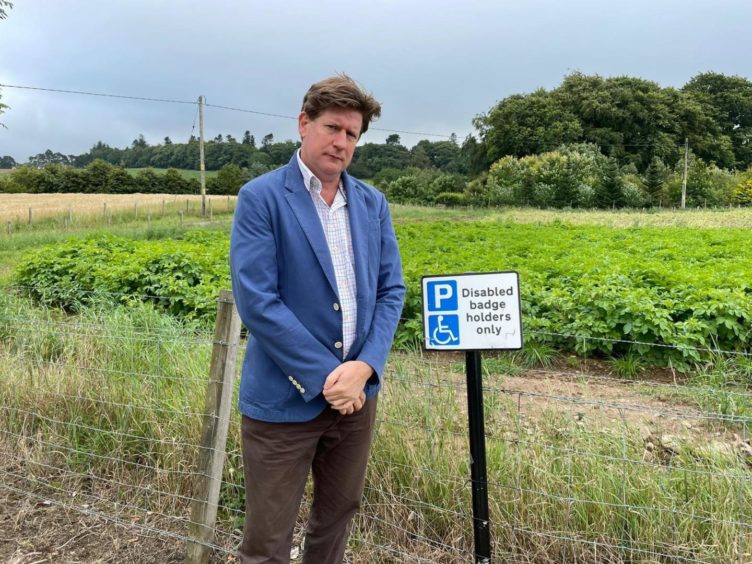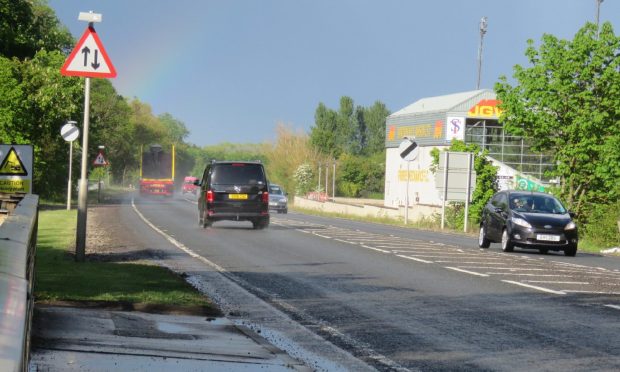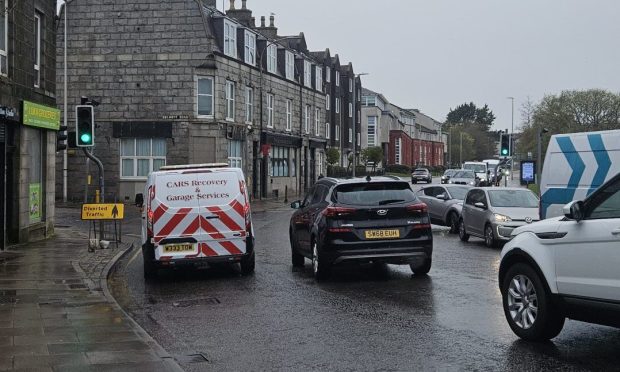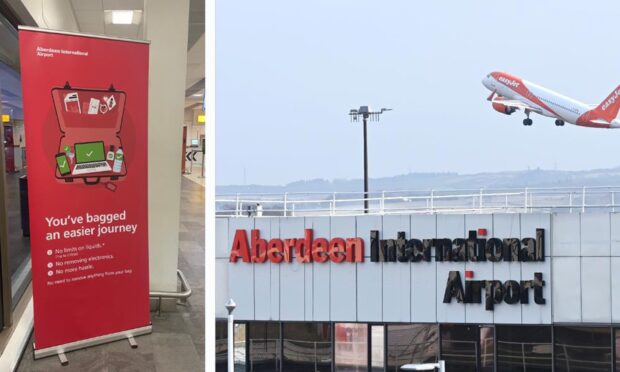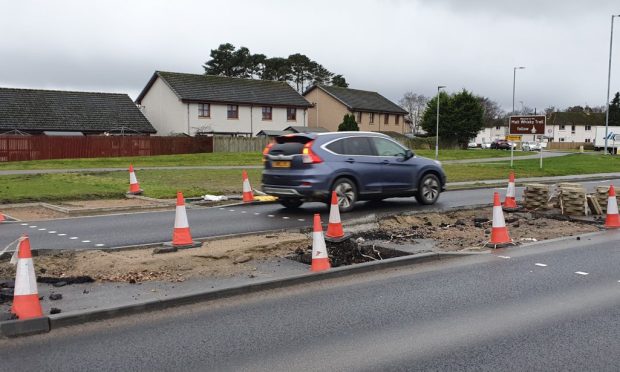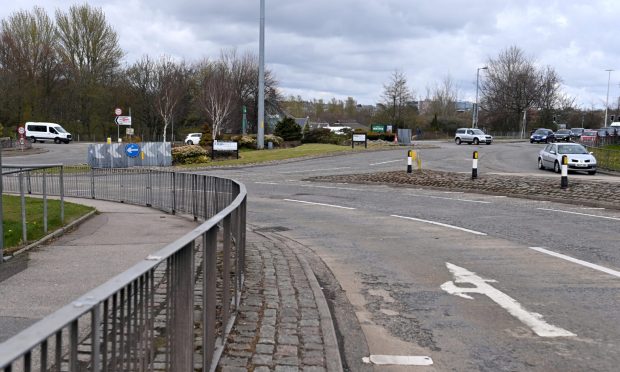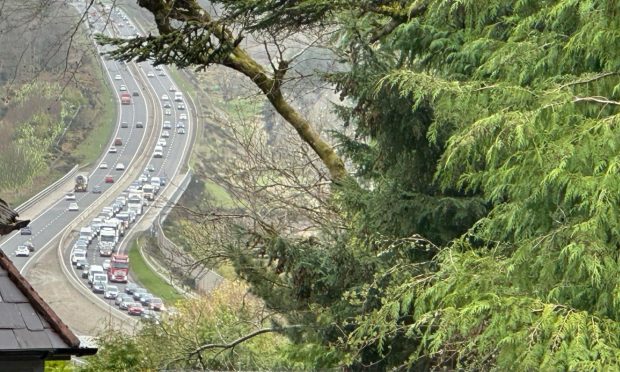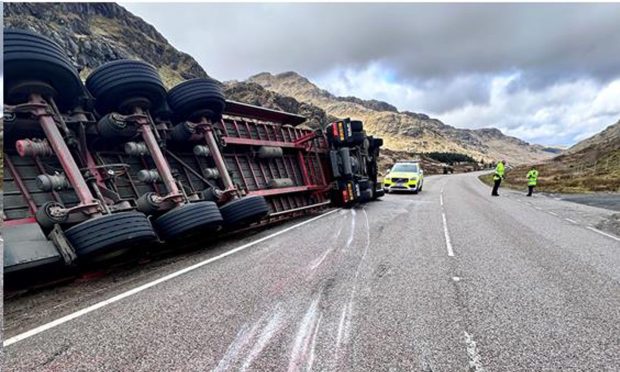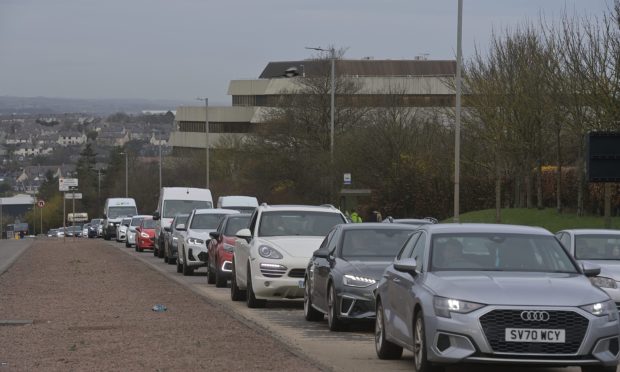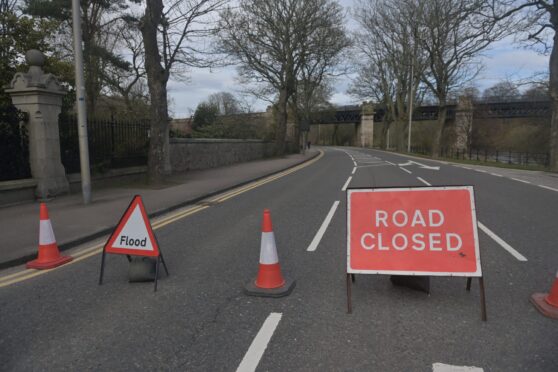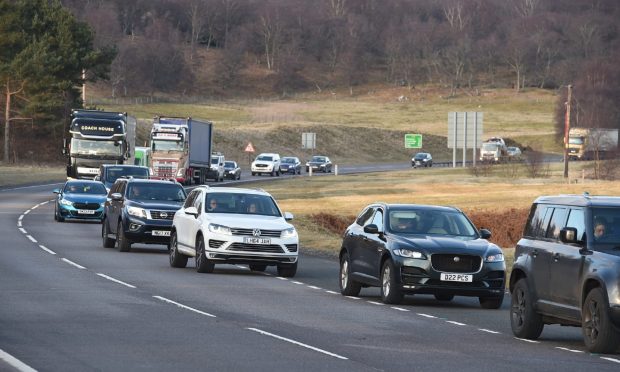A pair of Aberdeenshire volunteer groups who transport frail patients to and from Aberdeen Royal Infirmary have been denied blue disabled parking space badges, despite them being granted to both for more than a decade.
The Alford Car Transport Service and Car Aid Rhynie help disabled, elderly or infirm rural residents with a lift to medical appointments, usually at ARI.
Previously, they have used blue badges granted to the organisations to park in disabled bays, allowing them to get as close as possible to where patients need to go.
But this year, despite the Alford service having had permission to use blue badges since 2003, and the Rhynie organisation using theirs for the past 12 years, both of the volunteer-run organisations were told they would not be allowed them anymore.
The groups were informed by Aberdeenshire Council that this is due to eligibility criteria set by the Transport Scotland, and because they are services that provide only transport, and not dedicated care, they are not able to be granted badges.
Both were told that any passengers they help can bring their own blue badges, which will allow them to permit any vehicle they’re being transported in to park in disabled bays.
‘We need to get them as near to the door as possible’
However Gladys Cruickshank, who has been organiser of the Alford Car Transport Service since 2000, said many of the people they assist don’t have blue badges.
She explained: “It would be a great help if we could have the badges back, but the blue badge team maintains the people we’re transporting should be applying for badges themselves.
“Well, a lot of the people we help are elderly people around here, with no drivers for them, so I can’t see them ever wanting to apply for a blue badge.
“And occasionally those people are not able to walk from the car park to the hospital or anywhere else we’re needing to take them, and we need to get them as near to the door as possible.”
The organisation has 30 volunteers, all from around the Alford area, who never stopped assisting people throughout the pandemic.
‘It’s been difficult’
One of the volunteer drivers, Colin Spence, is the secretary of the service.
He said: “It can be difficult, especially if the person is unsure of where they’re going, or they have mobility issues.
“We were told that the passengers that we’re carrying, if they qualify for a blue badge, then they should have one and use it.
“But the lady I got today at ARI was a prime example, she would qualify for one, I’m almost certain, but she doesn’t have a car, and it just never crossed her mind to apply for one.”
Car Aid Rhynie ‘baffled’ at change
Kate Hunter, organiser of Car Aid Rhynie, said her volunteers have also struggled without being able to use disabled parking spaces when transporting patients.
She said: “We have patients that don’t have blue badges because they’ve only been diagnosed lately, and it takes a while for a blue badge to come through.
“We have patients that are going to radiotherapy, and they can only walk so far, probably the distance from the disabled spaces.
“We’ve never found it a problem before because we’ve parked in the disabled spaces and used a wheelchair to transport them in.”
She added: “I’m a bit frustrated to be honest, and a bit disappointed that it’s also made life more complicated for our volunteer drivers, who are doing their very best for those who need assistance.
“I’m a bit baffled with the outcome really, and disappointed.”
The council’s explanation
Although Aberdeenshire Council is responsible for handing out badges in the region, it adheres to eligibility criteria set by Transport Scotland.
As to why badges were this year refused to both organisations despite them being granted to both for years previously, a spokesman for the council said it has been reviewing its interpretation of eligibility criteria in discussions with Transport Scotland.
A spokeswoman for Aberdeenshire Council said: “A blue badge may be issued to an organisation that cares for and transports disabled people, who would themselves meet one or more of the eligibility criteria for an individual blue badge, and has a clear need for an organisational badge rather than using the individual Blue Badges of people it is transporting.
“Eligible organisations include those registered care providers providing support to people in care homes, hospices or local authority social services.
“Anyone who requires the use of a blue badge to access services and amenities can do so online on the council’s website, over the telephone or by paper application.”
Transport Scotland’s review of the process
Transport Scotland said there have been no recent changes to blue badge eligibility criteria in Scotland, and highlighted that a review is being carried out to “improve the process for organisations applying for a blue badge”.
A spokesman said: “Applications for badges from organisations caring for disabled people should be examined to ensure that they meet the qualifying criteria.
“It is for local authorities to make this judgement, based on the information provided to them by the organisation concerned.
“Any organisations which are unsuccessful in their application can use an individual’s blue badge when carrying that Blue Badge holder as a passenger.”
“We are currently undertaking a review of the guidance we provide to local authorities to improve the process for organisations applying for a blue badge and to make sure applications are being examined consistently across the country.”
‘These organisations are a lifeline’
Alexander Burnett, Tory MSP for Aberdeenshire West, has been in contact with both groups, and said he has asked the Scottish Government to change the rules to allow Car Aid Rhynie and the Alford Car Transport Service to once again have their own badges.
He said: “It’s extremely disappointing that these groups in Rhynie and Alford have been declined their blue badge renewals.
“These organisations are a lifeline for many and this decision now means they don’t have access to this vital support mechanism.
“It’s surprising that after more than a decade, this has only come to fruition now to the detriment of these valuable groups.
“Many disabled people, including those with invisible impairments, are unable to see their GP or use shops and amenities unless they can park within a short distance.
“This confusion relating to the blue badge process highlights that the Transport Scotland guidance isn’t clear enough for councils.
“I have asked the Scottish Government for the criteria to be changed so vital groups like these can continue to meet the needs of their patients on a daily basis.”
